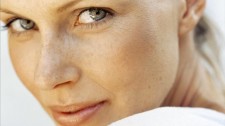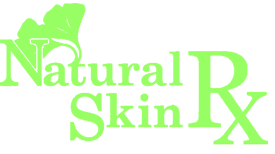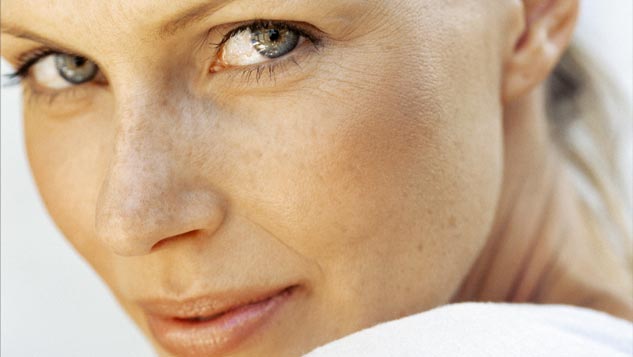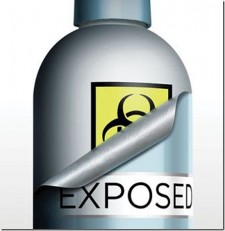
Skin spots go by different names. The fanciest name is hyperpigmentation, which just means the excess production of pigment. They are most commonly called age spots, liver spots, or freckles. Regardless of what you call them, they can be unsightly. Avoiding them is a challenge, since so many factors contribute to them. The main causes are sun damage, so-called normal aging, skin trauma, and even genetics.
Other contributing factors to hyperpigmentation include acne, burns (including sunburn), waxing, harsh facial scrubs, insect bites, abrasions, and inflammation-causing chemicals in many household products. All of these indicate inflammation in the skin, which is a normal healing response. However, skin spots often appear and remain long after the inflammation has subsided.
What is particularly disappointing about skin spots, regardless of their cause, is that they can last for months or years. They become what seems to be a never-ending obstacle to achieving the clear, even complexion that you really want. Fortunately, there are a few things you can do to lighten them and keep them at bay.
Of course, as you might expect, sunlight makes everything worse. Staying out of the sun is a logical step. However, it is often impractical. Avoiding sunlight also takes away some of the advantages that you can get from it, most notably the synthesis of plenty of vitamin D in your skin. Sunscreens are not always a good choice, either. Too many of them contain toxic substances that you don’t want to put into your body.
Toxic chemicals surround us, at home, at work, and out in the public. There are too many to list in one place, so the best advice is to be aware of what comes in contact with your skin. Use only organic skin care products.
Antioxidant Warning
Normally antioxidants are lumped together in our minds as something good. However, not all antioxidants are the same, regardless of whether they are in natural skin care products. When it comes to treating hyperpigmentation, one common antioxidant in cosmetics has attracted a lot of negative attention. It is called hydroquinone.
On the positive side, hydroquinone is very effective against skin spots. Furthermore, product labels that cite its natural occurrence are correct. It is found in a few plants, in a mushroom, and even in a beetle.
However, commercial hydroquinone in natural skin care products is actually synthetic and the use of hydroquinone in such products is controversial. The FDA has classified hydroquinone currently as a safe product, as currently used, even though in 2006 that agency proposed a ban on its over-the-counter uses. In addition, it has so many possible side effects that its use as a skin whitener has been banned in countries of the European Union.
The Campaign for Safe Cosmetics advises against the use of hydroquinone. This organizations also warns against ingredients that contain hydroquinone that appear on labels as tocopheral acetate, tocopheral, tocopheral linoleate, and other ingredients with the root “toco”.
Herbal Skin Care
Several kinds of herbs provide antioxidant activities that inhibit the formation of melanin, the pigment that makes up skin spots. Perhaps the best known is mulberry.
Mulberry produces several substances that provide antioxidant activities. They include different classes of phytochemicals such as flavonoids and stilbenes. Certain of the stilbenes have potent effects on enzymes of the skin that drive the buildup of melanin.
A recent study from Korea University in South Korea examined these effects. This study, published in 2011 in the journal, Food and Chemical Toxicology, showed how mulberry stilbenes inhibit the formation of melanin that is induced by ultraviolet radiation. Specifically, these stilbenes inhibited key enzymes and other factors that work to make melanin.
The final recommendation by the scientists who conducted the study was that mulberry stilbenes may be suitable cosmetic agents. Doesn’t it seem ironic that this modern science simply confirms ancient wisdom about mulberry? After all, this herb has been a key ingredient in herbal skin care products for quite some time. Indeed, it is one of the mainstays in many excellent products from Jadience Herbal Formulas that are available from NaturalSkinRx. Including their Skin Rejuvenation Soak, with some before and after studies showing some phenomenal results as can be seen here.
Still Seeing Spots?
Although modern scientific research plods along, we already know what to look for among herbs whose antioxidants can help with those unsightly spots. Knowledge from Traditional Chinese Medicine points the way. Besides mulberry, look for organic skin care products that contain such herbs as white peony, burdock root, and green tea. All of them produce a variety of powerful antioxidants that help you keep skin healthy and beautiful.




